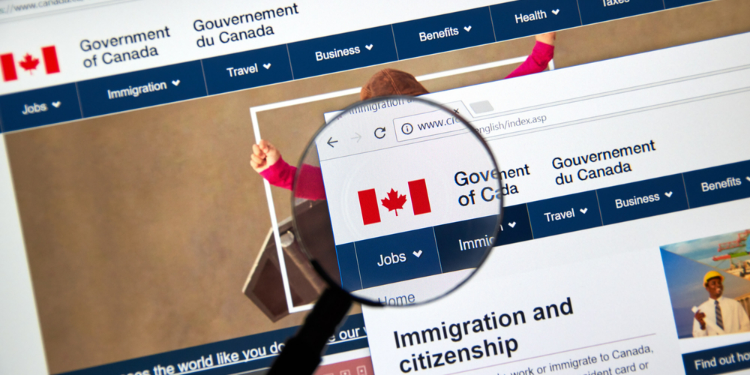
To solve the country's labor shortage and visa backlog, the Canadian government has recently introduced new reforms in the Immigration, Refugees and Citizenship Canada (IRCC) department to speed up immigration, residency and citizenship processes. The reforms cover exemption from medical exams as well as the digitalization of visa/permit applications, interviews and status trackers.
Background: Labor shortage and visa backlog
Canada is currently the leading country worldwide to be facing a labor and skills shortage, ranking ahead of Australia in this regard. According to the economists at RBC Thought Leadership, as of June 2022, Canadian companies have 70% more openings than in 2019 (pre-pandemic levels). Yet, unemployment figures are at a historic low of 4.9%.
The crux of the matter lies in how the Canadian economy structurally relies on constant immigration. Since 1998, the country has welcomed a minimum of 200,000 new foreign workers every year. The pandemic and its associated border closures disrupted this inflow of labor. As the economy has been weakened in the short term by Covid, it now needs even more foreign workers in the next few years. Before the pandemic, Canada targeted 340,000 new migrants per year, but the Immigration Levels Plan 2022-2024 is targeting around 430,000 in 2022, 447,000 in 2023 and a whopping 451,000 in 2024.
The major obstacle to meeting these targets is the visa backlog at the Immigration, Refugees and Citizenship Canada (IRCC) department. In July 2022, there were an astounding 2.7 million visas backlogged at the IRCC's offices, awaiting processing or final approval: this backlog had grown by 300,000 in a single month, from June to July (CIC News). New reforms have been announced by Immigration Minister Sean Fraser to deal with this backlog. These reforms aim to modernize, digitize and speed up the IRCC's processes.
Exemption from medical exams
A medical exam performed by a panel physician approved by the IRCC is a requirement of many long-term student and work visas in Canada. The exam is particularly important for applicants who will study/work in healthcare or agriculture, where public health could be endangered if the newcomer has a contagious disease. It's also very important for elderly parents and grandparents joining their resident children/grandchildren in family reunification, for the elderly could have health issues that put excessive pressure on the Canadian healthcare system.
The IRCC's new reform, announced by Minister Fraser on September 1, is waiving the medical exam requirement for some permanent and temporary residence applicants who are already in Canada. They will also need to meet some other criteria which haven't been specified by IRCC yet. In its press release, the IRCC says it will apply to some 180,000 foreign nationals currently in Canada.
This exemption will allow those eligible to reduce their waiting time as well as save 300 Canadian dollars, the fee for the medical exam. However, the IRCC still hasn't specified the date when this exemption will come into effect.
Digitalizing the immigration process
IRCC is also making the most of new technologies to speed up its processes. From September 23, many permanent residency visas will be transitioning to having 100% online applications.
Visas for which you can apply fully online from September include the Provincial Nominee visa (non-Express Entry), the Quebec-selected skilled workers visa, the Atlantic Immigration visa, the Start-up visa, the Agri-Food Pilot visa, visas for parents and grandparents, among others. The full list can be consulted on the website of the Government of Canada. IRCC is also preparing to expand online applications to minors under the age of 18, which could be available from the end of this year.
This digitalization had been in the pipeline since at least January 2022, when IRCC said it planned to launch an online application platform by summer or fall 2022. In late 2020, at the height of the pandemic, IRCC created a portal for foreign nationals who are already in Canadian territories to process and obtain their permanent residence card without any in-person interaction. Over 200,000 people were able to obtain their permanent residence card through this portal in the June-December 2021 period. The success of this Permanent Residence Portal has encouraged the Canadian state to further expand digitalization.
Interviews are also being shifted online. When the pandemic was in full swing, there was no other option but to conduct visa interviews on the phone or through video conference platforms. As sanitary restrictions have eased worldwide, in-person interviews have resumed at Canadian and international offices, but the IRCC is still looking to maintain online interviews. It plans to conduct a pilot project with spousal sponsorship visas before expanding virtual interviews to other visa programs. This will save applicants the time and cost of traveling to visa offices.
In order to provide better information to applicants, the IRCC is also launching online application status trackers for some permanent visas. In February 2022, it launched status trackers for partner, child and dependent sponsorship applications. By spring 2023, seven more permanent and temporary visas will also have online trackers. Furthermore, citizenship (not permanent residency) applications were also equipped with online trackers since May 2021. These trackers give applicants better estimates about how long their application processes are taking, when they should get certain documents ready, when they should book air tickets, etc.



















